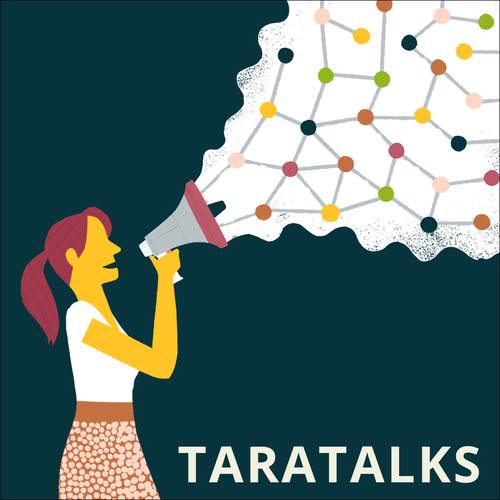Like most careers, Alutha Moshani’s path to becoming an information systems professional wasn’t a direct route. Today she’s a senior IT leader at Sanlam, one of South Africa’s leading insurance firms. Getting there meant she surmounted structural, interpersonal and identity-related challenges that many STEM women face. That she did it as a Black woman in a country with a legacy of racial oppression is its own remarkable achievement. She says that perseverance, passion and purpose-driven by data—got her to where she is today.
Alutha studied Information Systems at the University of Cape Town (UCT) in South Africa, but in her TARATALK with founder and CEO D. Sangeeta, she notes that data isn’t just confined to the facts that we find in textbooks, documentation and systems. “It’s a lot about what you see, what you feel and also what you experience as a person,” she notes.

Combine data, diligence and competence to reach your STEM Career goal
In Alutha’s case, the first data point that shaped her life was the experience of growing up in a township in a four-room home with her cousins, aunts and her grandmother. “I didn’t feel like I grew up in poverty,” says Alutha. “We always had a plate of food to eat on our table every day… So, I’m grateful for that. And my mother sacrificed everything to send me to better [multi-racial] schools… From a very tender age, it was instilled in me that education is the one thing that no one can ever take away from me.”
It was the message her mother instilled and lived as she received her nursing diploma in her 40s after toiling as a an entry nurse for decades. Her mother also used her funds to expand their four-room dwelling into a five-bedroom home with a toilet and bathroom inside the house.
Alutha keenly understood how education could also open doors for her to afford what she describes as a comfortable life. After high school, she set off to university, intending to study psychology.
Here’s where she experienced the second data-driven turning point in her life. During orientation week, she went to a talk about career opportunities in information systems and quickly realized this was a better path to a job. “It was important for me that I didn’t struggle to find employment once I graduated and that I earn good money. I felt that information systems was better aligned to my needs at this point.”
After graduation, she landed a job at Accenture Consulting and was “over the moon” until she soon realized that a culture of non-stop work didn’t mesh with the kind of family life she wanted to have. Again, the data was clear, and she made the difficult decision to leave a desirable job after one year, eventually moving to Sanlam, where she acts as a liaison for IT services between SGT and business units within the Sanlam Group.
Here are five data-point insights Alutha gleaned from her information systems career in STEM
1. IN DIFFICULTY, FIND DISTINCTION
“Being a woman in corporate South Africa can be both a challenge as well as an opportunity,” says Alutha. Even though the country has experienced democracy for just over two decades, it more than a century of racial segregation has left many scars that are still very much existent, but not so openly.
“Some people will treat a person of a different race in a particular kind of way,” explains Alutha. “I’ve found that sometimes it’s not because they are malicious, but because they know no better. That’s how they’ve been wired. That’s how they’ve been moulded over the years.”
So, where’s the advantage in this situation?
“I chose not to be bothered by anything,” says Alutha. “When I’d be in a meeting with perhaps one other woman, I’d use it to my advantage. It encouraged and motivated me to do better. I thought, ‘OK, I’m special, and I’m doing something great.’ But it’s not easy if you’re Black because sometimes they speak in Afrikaans, which isn’t a language everyone is fluent in. I would always ask them to speak English—but not everyone has that confidence depending upon their background. Because I was sent to a multi-racial school I was used to being in environments with people of various races. You learn quickly to grow a very thick skin.”

2. IT’S A BIG WORLD. FIND YOUR PLACE IN IT.
“As a woman, you may want to try to prove yourself. You’re trying to play in a man’s world…and in so doing, you try to emulate the man instead of using your strengths as a woman to play the game even better.”
3. DON’T FOSTER THE IMPOSTER
“It can be a challenge for a Black woman to walk into these boardrooms. Sometimes you get imposter syndrome, and you say to yourself, ‘I’m not worthy to be here. I’m not ready to be here because of my past experiences.”
Alutha’s advice: “Stop having an imposter syndrome. Know that you are enough. Let your competencies speak for themselves. Worry about showing up, having done your homework and having carried out your task at hand.”
4. HEED THE CALL OF DUTY
Despite the challenges, Alutha says there are many positives to being a Black woman in a senior information systems position because it creates mentorship opportunities for other young women.
“Everyone says, mind your own business,” notes Alutha. “I’m not good at minding my own business when another young person is coming into the profession, and they experience hardship…. For leaders, I would urge you to have a duty to your juniors not to experience the same hardships you experienced. Make your work environment a bit more palatable for them as a leader. And don’t let negative energy drain you down.”
5. MASS ACTION
As more Black women move into leadership roles, Alutha says it’s a chance to change the status quo. “It’s an opportunity for us to start changing the challenges we face because as more like-minded people start taking up leadership positions, we start to build up a critical mass of like-minded leaders who can drive the change.”
To know more about information systems career, join Gotara and receive advice from top STEM+ leaders.
#HerStory

Alutha Moshani
IT Exec | Advisory Board Member at WOMEN IN TECH | Motivational Speaker | Social Inclusion Advocate






